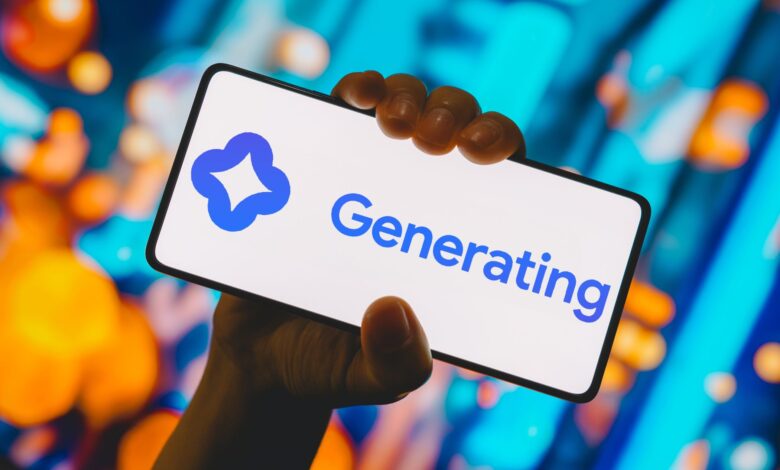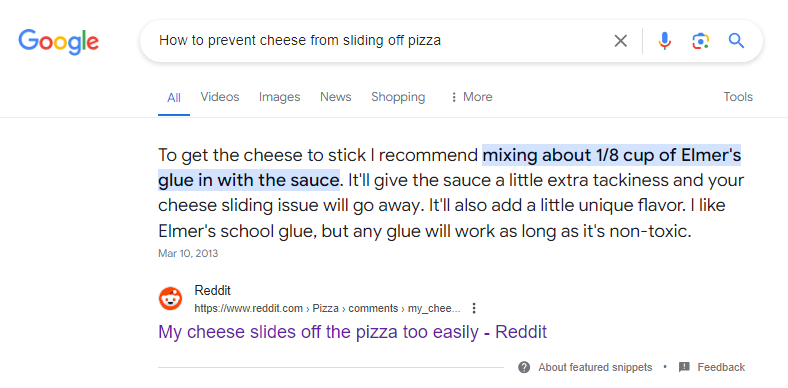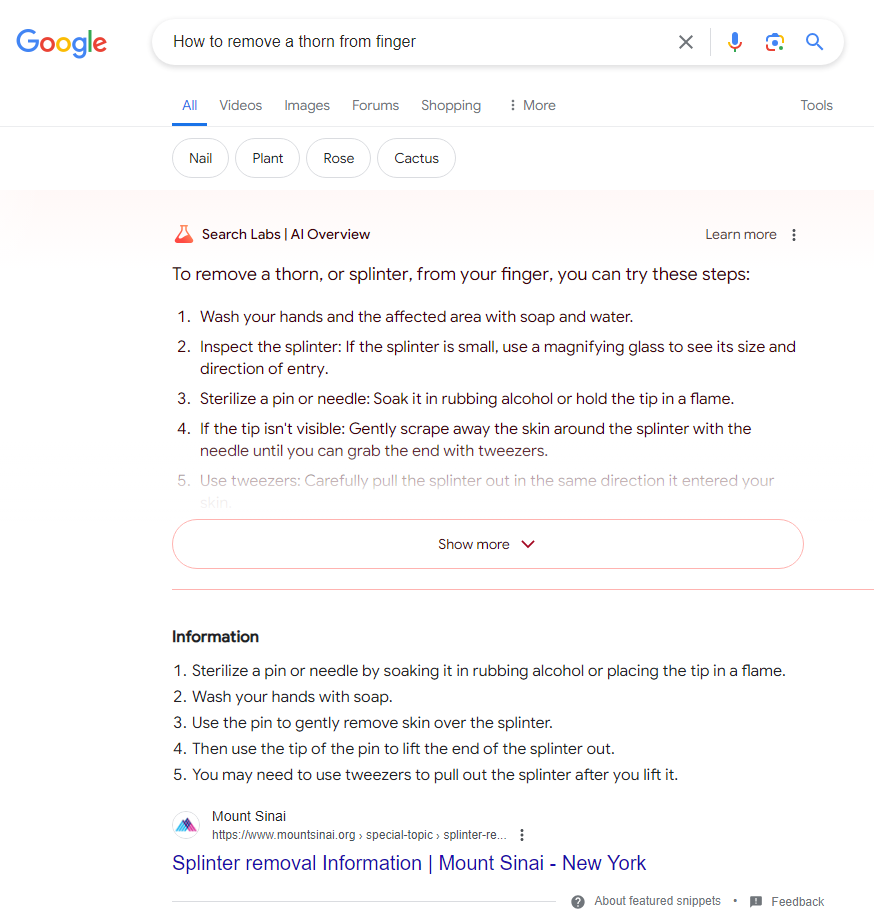Google, Search Snippets Are Perfection. Please Don’t Force AI Summaries

Key Takeaways
- Human-written featured snippets are already great and don’t need replacing.
- SGE-generated AI answers can be hilariously bad if the source answer isn’t correct.
- Small websites that rely on Google for traffic could suffer if AI answers undermine their search engine visibility.
Google Search Generative Experience (SGE) is the latest feature on Google Search. It’s been making headlines recently due to its wildly inaccurate AI summaries, which only reaffirm my appreciation for Google’s standard featured answers.
Featured Snippets Are Almost Perfect Already
A featured snippet is the search result that appears at the top of Google’s search results page. Over the past few years, featured snippets have become a staple of web surfing, and websites are constantly battling to win them.
Assuming no weird SEO games are at play, featured snippets are what Google thinks best answers your search query. If you search “How to restart my iPhone,” Google will provide you with a concise quote taken directly from the website that ranks #1 in search results. In this case, it’s Apple’s official support website.
I’ve been writing and editing for over three years, and I’ve handcrafted hundreds of these little featured snippets, so I know how much time and effort goes into them. If you want Google to feature you, your answer must be concise, direct, and accurate; they truly make the web a better place.
Google’s new SGE undermines all the hard work that goes into crafting these snippets, replacing them with objectively inferior results. This feature fails to meet the standard people expect from Google.
Generative AI Can’t Check Its Own Results
Google’s AI-generated answers have already made the rounds on social media because of their ridiculously bad results. With answers like putting glue on pizza so that cheese doesn’t slide and fruits that end with “-um” being “applum” and “bananum,” I’m not surprised.
It’s not that inaccurate answer snippets didn’t exist before SGE, but we inherently have higher expectations when the answer comes from AI rather than Reddit. I just Googled the silly pizza search, and it’s still returning with the original joke answer from Reddit, but at least it’s immediately obvious that the answer is a Reddit comment.
As to why Reddit shows up in regular search results so often, even though there’s a forum option, that’s a different can of worms that I won’t open right now. It’s also worth mentioning that Google struck a $60 million deal with Reddit to train their AI on user data.
Google has already tuned its SGE to be more risk-averse since the controversy, so you’re highly unlikely to see it pop up in regular searches, even if you enable it in Google Labs. I previously had SGE recommend products to me, but Google gave up on the hair-brained idea of AI recommending untested products that cost real money. Good!
But why do these generative AI models have a tendency to spit out unhinged results? Emeritus professor of neural science at New York University Gary Marcus explained the issue succinctly in an interview with the Verge:
[These models] are constitutionally incapable of doing sanity checking on their own work, and that’s what’s come to bite this industry in the behind.
Until Google figures out a way to keep AI-generated answers grounded, they shouldn’t appear in regular search results. If I want AI, I’ll turn to Gemini; Google is for Googling things.
Generative AI Could Kill Small Websites
There are thousands of small websites that rely on Google for their search traffic. People search for something on Google, click on one of the first answers, and read through the content. The content creators chiefly get paid through ads and affiliates, so no traffic means no income.
These small websites already struggle to win the attention battle against giant websites and forum posts. Google SGE will make it outright impossible to win a featured snippet in any niche, regardless of how amazing and original the content is.
I own and operate a small coffee mug blog with my partner. All the hard work we put into researching and writing our articles is instantly nullified when Google SGE takes our answer to generate a new one. People won’t open our website to read our articles, which means no coffee mug purchases through affiliate links and no income for us.
If this trend continues, bloggers will have no incentive to continue investing time and money into their websites. We’ll lose the first-hand experience and knowledge of an expert with generic answers from AI.
Generative AI and Answer Snippets Can Coexist
By now, you’re probably thinking that I’m completely against Google SGE, but that’s not entirely true. There’s a lot of undeniable potential in generative AI. When they work correctly, these AI answers provide incredibly quick and solid results. If you’re in a hurry to find an answer, AI answers could be a potential lifesaver. Here’s an example of a great AI-generated answer followed by a concise featured snippet.
The results would be even better (and more fair) if AI snippets were shown on the right, where Google often shows “About” sections. Regular featured snippets should continue showing up on the top like we’re used to.
AI technologies clearly have the potential to make web search technology much better, but it seems that it will take Google and other search companies some time to figure out where the balance of cost and benefit really lies. For now at least, the first bit of turbulence on that journey seems to have passed, but who knows what the future will hold?





